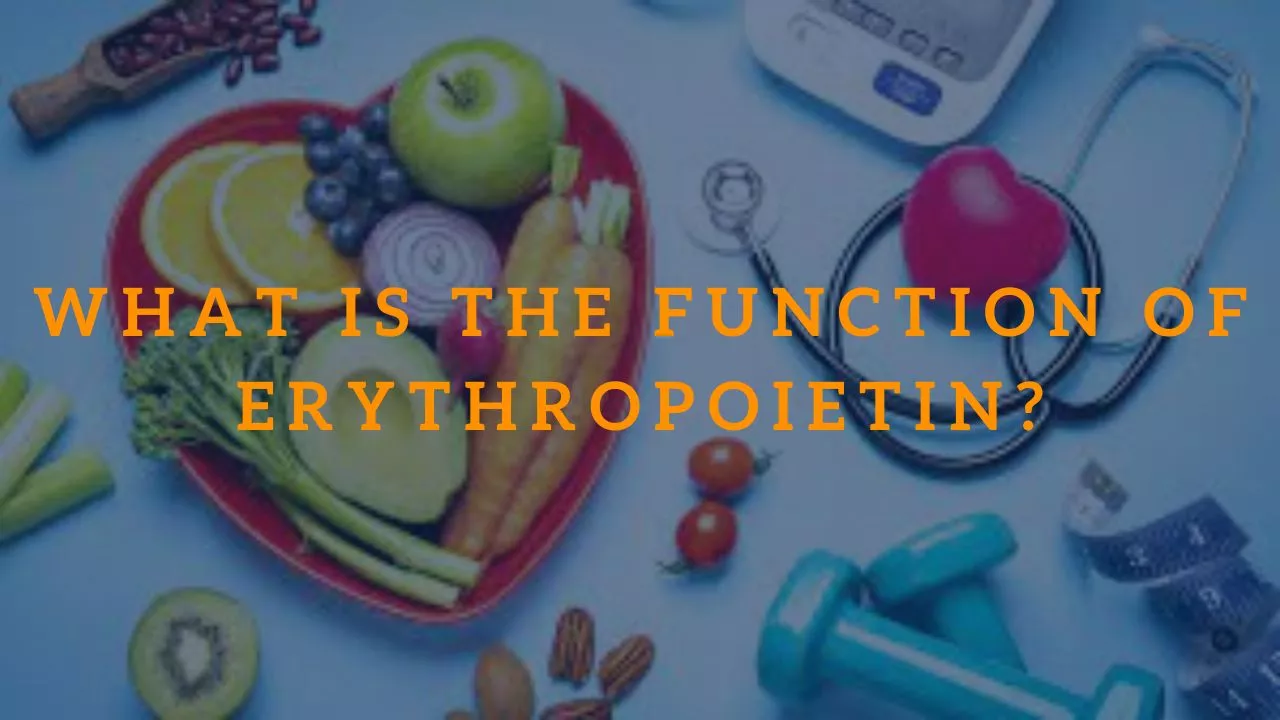Hello 1-GSM Visitors! Have you ever wondered what erythropoietin is and what its function is in the body? If you have, then you are in the right place. In this article, we will discuss all about Erythropoietin, how does it works and the function of it.

What is Erythropoietin?
Erythropoietin (EPO) is a hormone produced by the kidneys that regulates the production of red blood cells (RBCs) in the bone marrow. It is a glycoprotein that stimulates the proliferation and differentiation of erythroid progenitor cells, which eventually become mature RBCs.
What is the Function of Erythropoietin?
The function of erythropoietin is to maintain the balance of RBCs in the body. It does this by regulating the production of RBCs in response to changes in oxygen levels. When the oxygen levels in the body decrease, such as during exercise or at high altitudes, erythropoietin stimulates the production of RBCs to increase oxygen delivery to the tissues.
EPO also plays a crucial role in the body’s response to anemia, a condition where the number of RBCs in the body is lower than normal. In such cases, erythropoietin is used therapeutically to increase the production of RBCs and improve the patient’s symptoms.
How Does Erythropoietin Work?
Erythropoietin works by binding to specific receptors on the surface of erythroid progenitor cells in the bone marrow. This binding triggers a cascade of events that leads to the proliferation and differentiation of these cells into mature RBCs.
EPO also has additional effects on the body, such as promoting the survival of RBCs and reducing inflammation.
What Happens When Erythropoietin Levels are Abnormal?
When erythropoietin levels are too low or too high, it can lead to various health problems.
Low levels of erythropoietin can result in anemia, which can cause symptoms such as fatigue, weakness, and shortness of breath. This can be due to kidney disease, genetic disorders, or certain medications that affect erythropoietin production.
High levels of erythropoietin can lead to a condition called polycythemia, where there is an excess of RBCs in the body. This can increase the risk of blood clots, stroke, and heart attack.
How is Erythropoietin Measured?
Erythropoietin levels can be measured through a blood test. The normal range for erythropoietin levels varies depending on age, sex, and altitude. Generally, erythropoietin levels are higher in people living at high altitudes, where there is less oxygen available.
Erythropoietin and Doping in Sports
Erythropoietin is often abused by athletes to enhance their performance. By increasing the number of RBCs in the body, erythropoietin can improve endurance and reduce fatigue.
However, the use of erythropoietin for doping purposes is prohibited by most sports organizations due to its potentially harmful effects on health. Athletes who are caught using erythropoietin can face penalties such as disqualification and suspension.
Conclusion
In conclusion, erythropoietin is a hormone produced by the kidneys that regulates the production of red blood cells in the body. Its function is to maintain the balance of RBCs and respond to changes in oxygen levels. When erythropoietin levels are abnormal, it can lead to various health problems such as anemia or polycythemia. Erythropoietin is also used therapeutically to treat anemia. However, the use of erythropoietin for doping purposes is prohibited by most sports organizations due to its potentially harmful effects on health. We hope you found this article informative and entertaining. See you again at our other interesting article!
